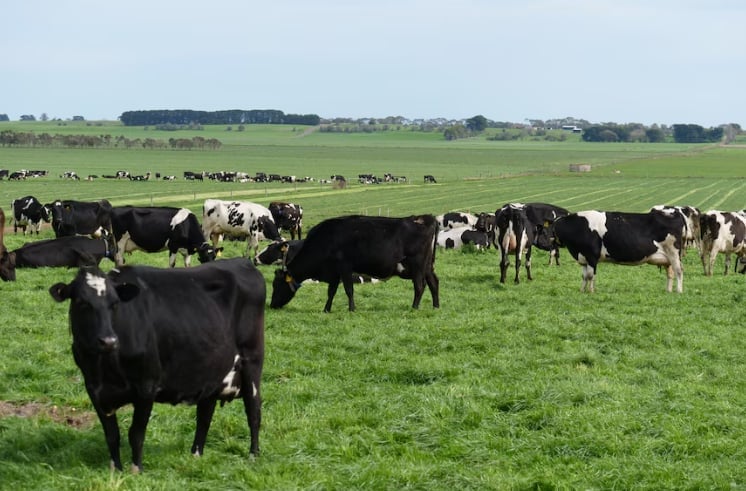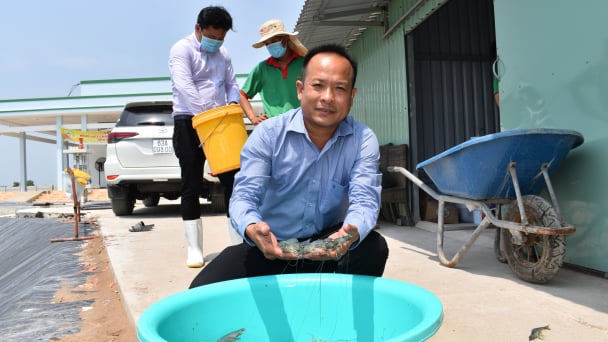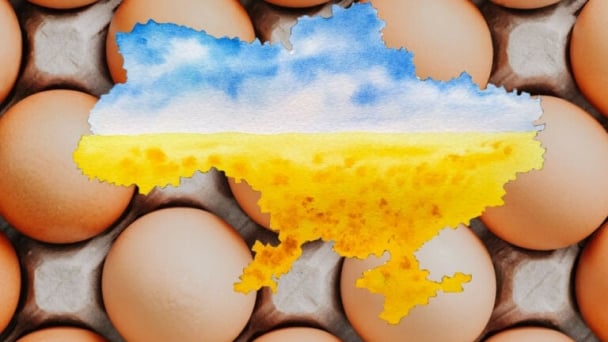May 21, 2025 | 09:31 GMT +7
May 21, 2025 | 09:31 GMT +7
Hotline: 0913.378.918
May 21, 2025 | 09:31 GMT +7
Hotline: 0913.378.918

Australian dairy output has shrank over the past decade. Photo: ABC News: Olivia Sanders.
Australian farmers say the industry is struggling to compete with a flood of cheaper, imported dairy products as production costs remain high and consumers seek out more affordable options.
About a quarter of all dairy products consumed in Australia are imported, particularly cheese and butter.
That is despite Australian dairy farmers producing 387,000 tonnes of cheese alone last financial year.
Rabobank senior dairy analyst Michael Harvey said Australia imported many dairy products despite having a large domestic industry.
"We do see a lot of cheese coming in for manufacturing or for ingredients so quite a lot of cheese from New Zealand and even from the U.S. to service food service channels, sometimes grocery channels," Mr Harvey said.
Mr Harvey said it had been a long-term trend while Australia's milk supply had declined.
"But also … price is important," he said.
In a statement, a Woolworths spokesperson said the company was committed to supporting Australian farmers.
They said a majority of Woolworths dairy products were from Australia.
"We're focused on offering our customers choices and ensuring that the country of origin is clearly labelled on all our dairy products to help customers make informed choices," the spokesperson said.
"We believe our current approach balances these considerations while continuing to support Australian dairy producers."
A Coles spokesperson said they were proud to have long-standing relationships with more than 100 Australian dairy farmers.
"The majority of the cheeses we sell at Coles are proudly produced in Australia by our dairy suppliers," they said.
"In fact, more than 80 per cent of our everyday cheese, a staple for many Aussies, sold at Coles is made in Australia from Australian milk."
Australian Dairy Products Federation chief executive Janine Waller said the growing volume of imported dairy products was a huge concern for the processing industry.
"Australians have gradually been eating more and more cheaper imported dairy products, and if I look back over last year, one in four products that were consumed are coming from imported products," Ms Waller said.
"The challenge is that they're well established."
She said cost-of-living pressure on consumers was a big challenge to overcome.
"They are tending to go towards the private label, the discounted products and while their best intent is to obviously be buying Australian products, sometimes they can't or they're not able to distinguish between an imported product when it's sitting on shelf in green and gold packaging," Ms Waller said.
Ms Waller said rising production costs made it hard for Australian products to compete price-wise.
"The previous three years we've been paying more for raw ingredients for materials than what's happening from an international perspective, and that's obviously invited a flood of cheaper imported dairy products into our supermarket shelves," she said.
Ms Waller called on the government to address the issue as a matter of "food security".
"China's had a huge push around how do they make sure that they're self-sufficient as a country … so we're really looking for our government to do the same thing," she said.
"How do we actually work with the government and farmers and processes side-by-side to really have a strong and vibrant industry?
"We need to make sure that we've got secure, domestic supply, efficient processing capacity, really creating value in our dairy, and obviously protecting against imports."
Australian Dairy Farmers president Ben Bennett said domestic dairy production had declined as Australia had shifted to become a net dairy importer.
"It's completely undermining our supply and demand system within our country," Mr Bennett said.
"Every time it looks like we're about to make a dollar, then they go off and import tens of thousands of tonnes of dairy, so we just get pushed down."
While Mr Harvey said any potential tariffs could further shift the international dairy trade, it would likely be to a much lesser extent than for other commodities.
"We don't see this as significantly disruptive, the way it is at the moment," he said.
"We actually import quite a bit of dairy from the US into the Australian market, particularly in cheese form, so that's a trade flow coming the other way."
While considered a major player in the international dairy markets, the United States exports less than New Zealand or the European Union.
Australia's major export markets are China, Japan, Singapore, Indonesia and Malaysia.
ABCNews

(VAN) One of the key factors for businesses to effectively take advantage of tariff preferences under these FTAs is the rules of origin.

(VAN) Oliyar, a prominent Ukrainian oil and fat manufacturer, has revealed plans to build a farm for 2.3 million laying hens in the Lviv region. The additional production quantities promise to change the competitive landscape of the egg market of the Eastern Europe region.

(VAN) On May 15, Ministry of Agriculture and Environment of Vietnam hosted the 'Connecting Vietnam - Germany agricultural, forestry and fishery trade' seminar in Berlin, Germany.

(VAN) In the face of counterfeit and imitation products, Khanh Hoa Salanganes Nest Company hopes for the prompt completion of the legal framework, strict enforcement against violations, and protection of the bird’s nest brand.

(VAN) Japan's efforts to lower the price of rice through the release of its stockpile may finally be making some progress, albeit at a snail's pace.

(VAN) U.S. tariffs are not only a 'shock', but also an opportunity for Vietnamese businesses to renew their mindset toward comprehensive development.

(VAN) As Bac Giang lychee enters the harvest season, Minister Do Duc Duy expects that the fruit will contribute greatly to agricultural exports due to standardized production and deep processing.